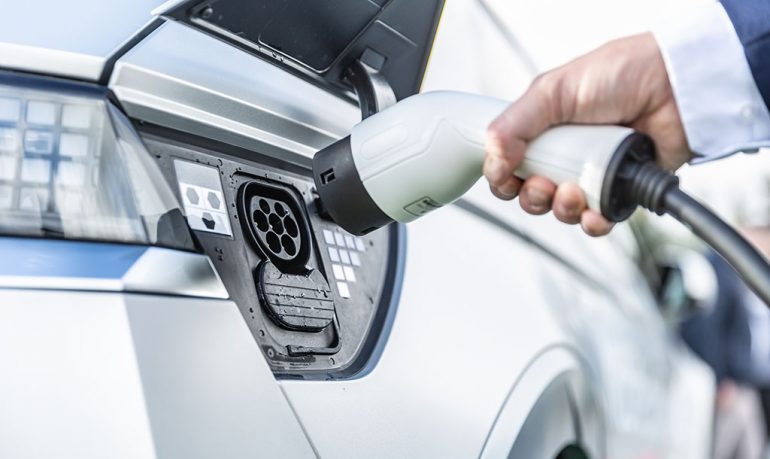
The inaugural electric vehicle (EV) charging station backed by a $7.5 billion U.S. government initiative has commenced operations in Ohio, marking a new stride in the nation’s push for widespread EV adoption. This milestone aligns with the ambitious targets set by President Biden’s $1 trillion 2021 infrastructure law, reflecting a commitment to address the concerns of prospective EV buyers by enhancing charging infrastructure.
Recognizing the pivotal role of expanded charging networks, automakers and industry stakeholders emphasize the necessity of a robust charging infrastructure to catalyze the mass deployment of electric vehicles. The White House has outlined an objective to expand the nationwide charger network to 500,000, incorporating high-speed chargers strategically positioned no more than 50 miles apart along major highways and interstates.
Financed by the substantial 2021 infrastructure law, the debut of the EV charging station in Ohio is hailed by Energy Secretary Jennifer Granholm as a significant stride towards establishing a convenient, affordable, and reliable electrified transportation system. This development is part of a broader initiative to advance the electrification of transportation and align with President Biden’s goal of having 50% of new vehicles be electric or plug-in hybrids by 2030.
As of December, the United States boasts more than 165,000 public charging ports, with a commendable 70% increase in publicly available fast-charging ports since the inception of the Biden administration. The administration’s emphasis on EV infrastructure has spurred action across all 50 states, with Ohio leading the way by inaugurating its first charging station near Columbus. Additionally, states like Vermont, Pennsylvania, and Maine have initiated construction on new charging facilities.
While progress is evident, the initiative has faced political scrutiny, notably from Republicans in Congress. Critics point out that, despite the passage of the 2021 infrastructure law over two years ago, the deployment of charging stations has been slower than anticipated. In response, the White House contends that all 50 states have formulated plans for EV infrastructure development, with several states already in the process of issuing proposals and awarding contracts for charging stations funded under the program.
Tensions regarding EV policies came to the forefront recently when the Republican-led House of Representatives voted to prevent the Biden administration from advancing stringent vehicle emissions regulations. The proposed regulations aimed at achieving a 67% electric vehicle market share by 2032 drew a veto threat from the White House, underscoring the ongoing debates surrounding the future trajectory of EV adoption and associated regulatory measures.
Source: Reuters

Lloyd Tobias is a seasoned automotive journalist and passionate enthusiast with over 15 years of experience immersed in the world of cars. Whether it’s exploring the latest advancements in automotive technology or keeping a close pulse on breaking industry news, Lloyd brings a sharp perspective and a deep appreciation for all things automotive. His writing blends technical insight with real-world enthusiasm, making his contributions both informative and engaging for readers who share his love for the drive. When he’s not behind the keyboard or under the hood, Lloyd enjoys test driving the newest models and staying ahead of the curve in an ever-evolving automotive landscape.